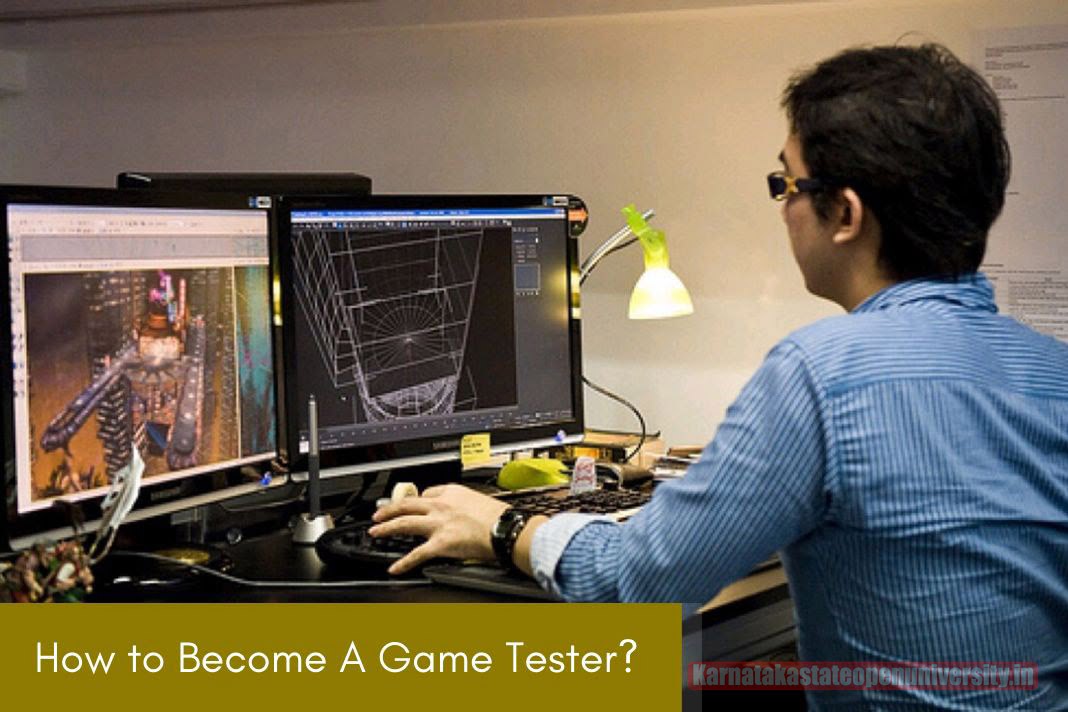What is a Game Tester and Why is it a Dream Job for Many?
Game testing is a crucial part of the game development process, involving the identification and reporting of bugs, glitches, and other issues that can affect the player’s experience. Game testers play a vital role in ensuring that games are stable, fun, and engaging, making it a dream job for many gamers. But have you ever wondered how much do game testers get paid for their work?
As a game tester, one’s responsibilities include playing games repeatedly to identify bugs, testing game mechanics, and providing feedback to developers. It’s a job that requires attention to detail, analytical skills, and a passion for gaming. Many gamers see game testing as a way to turn their hobby into a career, and it can be a stepping stone to other roles in the gaming industry, such as game development, design, or production.
Game testing can be a rewarding career, offering a unique opportunity to be part of the game development process and contribute to the creation of engaging and immersive games. With the gaming industry continuing to grow and evolve, the demand for skilled game testers is on the rise, making it an exciting time to consider a career in this field.
But what does it take to become a game tester, and how much can you expect to earn in this role? In this article, we’ll delve into the world of game testing, exploring the factors that affect game tester salaries, the education and skills required for the job, and the opportunities available in the industry.
Factors Affecting Game Tester Salaries: Location, Experience, and Industry
When it comes to determining how much game testers get paid, several factors come into play. Location, experience, and industry are three key factors that can significantly impact game tester salaries. Understanding these factors can help aspiring game testers navigate the job market and negotiate fair compensation.
Location is a significant factor in determining game tester salaries. Game testers working in major gaming hubs like Los Angeles, San Francisco, or Seattle tend to earn higher salaries compared to those working in smaller cities or rural areas. This is because major gaming companies are often headquartered in these cities, and the cost of living is typically higher. For example, a game tester in Los Angeles may earn an average salary of $45,000 per year, while a game tester in a smaller city may earn around $35,000 per year.
Experience is another crucial factor in determining game tester salaries. Game testers with more experience and a proven track record of identifying bugs and improving game quality tend to earn higher salaries. Junior game testers may start at around $30,000 per year, while senior game testers can earn upwards of $60,000 per year. Additionally, experience in specific areas like QA testing, game development, or project management can also impact salary ranges.
Industry is also a significant factor in determining game tester salaries. Game testers working in the AAA game industry tend to earn higher salaries compared to those working in the indie game industry or mobile game industry. This is because AAA game companies often have larger budgets and more resources to devote to game testing. For example, a game tester working on a AAA game title may earn an average salary of $50,000 per year, while a game tester working on an indie game title may earn around $30,000 per year.
Understanding these factors can help game testers navigate the job market and negotiate fair compensation. By researching market rates, highlighting relevant experience and skills, and understanding the industry and location, game testers can increase their earning potential and build a successful career in the gaming industry.
How to Become a Game Tester: Education, Skills, and Qualifications
Becoming a game tester requires a combination of education, skills, and qualifications. While a degree is not always necessary, having one in a relevant field such as computer science, game development, or quality assurance can be beneficial. Additionally, game testers need to possess strong analytical and problem-solving skills, attention to detail, and excellent communication skills.
In terms of education, game testers can benefit from courses in game development, programming languages such as C++ or Java, and software testing methodologies. Many colleges and universities offer degree programs in game development, game design, or related fields that can provide a solid foundation for a career in game testing.
Game testers also need to have strong technical skills, including knowledge of operating systems, software applications, and hardware configurations. Familiarity with game development tools such as Unity or Unreal Engine can also be beneficial. Furthermore, game testers need to be able to write clear and concise bug reports, which requires strong writing and communication skills.
Many game development companies also require game testers to have certifications in software testing or quality assurance. Certifications such as the Certified Software Tester (CSTE) or the Certified Quality Assurance Associate (CQAA) can demonstrate a level of expertise and commitment to the field.
To get started as a game tester, it’s essential to build a strong portfolio of work, including examples of bug reports, test plans, and other relevant documents. Networking with other game testers and industry professionals can also help to learn about job opportunities and best practices in the field.
Finally, game testers need to stay up-to-date with the latest developments in the gaming industry, including new technologies, trends, and best practices. This can be achieved by attending industry conferences, reading industry publications, and participating in online forums and communities.
Game Tester Salary Ranges: What to Expect in Different Regions
Game tester salaries can vary significantly depending on the region, with different countries and cities offering different rates of pay. In the United States, for example, game testers can expect to earn an average salary of around $45,000 per year, according to data from the Bureau of Labor Statistics.
In Europe, game tester salaries tend to be slightly lower, with an average salary of around €35,000 per year in the UK, and around €30,000 per year in Germany. However, salaries can vary significantly depending on the specific country and city, with major gaming hubs like London and Berlin tend to offer higher salaries.
In Asia, game tester salaries can vary significantly depending on the country and city. In Japan, for example, game testers can expect to earn an average salary of around ¥3.5 million per year, while in China, the average salary is around ¥200,000 per year.
It’s worth noting that these figures are just averages, and actual salaries can vary significantly depending on factors such as experience, industry, and specific company. Additionally, these figures do not include non-monetary benefits, bonuses, or overtime pay that may be included in the total compensation package.
To give readers a better idea of what to expect, here are some approximate game tester salary ranges in different regions:
- United States: $40,000 – $60,000 per year
- Europe: €30,000 – €50,000 per year
- Asia: ¥200,000 – ¥500,000 per year
Keep in mind that these are just rough estimates, and actual salaries can vary significantly depending on a variety of factors. If you’re interested in becoming a game tester, it’s essential to research the specific salary ranges in your region and industry to get a better idea of what to expect.
Top Game Development Companies: Salaries and Benefits
Some of the top game development companies that hire game testers include Electronic Arts (EA), Activision Blizzard, and Ubisoft. These companies offer competitive salaries and benefits to their game testers, including health insurance, retirement plans, and paid time off.
According to data from Glassdoor, the average salary for a game tester at EA is around $55,000 per year, while the average salary for a game tester at Activision Blizzard is around $60,000 per year. Ubisoft game testers can expect to earn an average salary of around $50,000 per year.
In addition to competitive salaries, these companies also offer a range of benefits, including:
- Health insurance: Many game development companies offer comprehensive health insurance plans to their employees, including game testers.
- Retirement plans: Some game development companies offer retirement plans, such as 401(k) or pension plans, to help their employees save for the future.
- Paid time off: Game development companies often offer paid time off, including vacation days, sick leave, and holidays.
- Professional development opportunities: Many game development companies offer professional development opportunities, such as training programs and conferences, to help their employees improve their skills and advance their careers.
Here are some examples of job postings from top game development companies:
- EA: “Game Tester – FIFA” (average salary: $55,000 per year)
- Activision Blizzard: “Game Tester – Call of Duty” (average salary: $60,000 per year)
- Ubisoft: “Game Tester – Assassin’s Creed” (average salary: $50,000 per year)
Keep in mind that these figures are just examples, and actual salaries and benefits may vary depending on the specific company, location, and job requirements.
Freelance Game Testing: Opportunities and Pay Rates
Freelance game testing offers a flexible and autonomous way for individuals to monetize their gaming skills. With the rise of the gig economy, freelance game testing has become a viable option for those looking to supplement their income or transition into a full-time career in game testing. But how much do freelance game testers get paid, and what opportunities are available?
Freelance game testers can work on a project-by-project basis, testing games for various clients across different platforms. Pay rates vary depending on the client, project scope, and the tester’s level of expertise. On average, freelance game testers can earn between $10 to $25 per hour, although experienced testers can command higher rates.
One of the benefits of freelance game testing is the ability to choose from a variety of projects. Freelance testers can work on different types of games, from mobile and PC games to console and virtual reality experiences. This diversity allows testers to gain a broad range of experience and build a portfolio of work that can be showcased to potential clients.
However, freelance game testing also has its drawbacks. Freelancers are responsible for their own benefits, taxes, and equipment, which can be a significant expense. Additionally, freelance work can be sporadic, and testers may experience periods of unemployment between projects.
To get started as a freelance game tester, individuals can create a profile on freelance platforms such as Upwork or Freelancer. They can also network with game development companies and attend industry events to find potential clients. Having a strong portfolio and a professional online presence is crucial in attracting clients and securing projects.
In terms of pay rates, freelance game testers can expect to earn the following hourly rates:
- Beginner testers: $10-$15 per hour
- Intermediate testers: $15-$20 per hour
- Advanced testers: $20-$25 per hour
- Specialized testers (e.g., console or VR testing): $25-$50 per hour
While freelance game testing offers flexibility and autonomy, it’s essential to remember that pay rates can vary widely depending on the client and project scope. Experienced testers who can demonstrate a strong track record of quality work can command higher rates and attract more lucrative projects.
How to Negotiate a Higher Salary as a Game Tester
Negotiating a higher salary as a game tester requires research, confidence, and a solid understanding of the market. Knowing how much game testers get paid in your region and industry can give you a strong foundation for your negotiation. Here are some tips to help you make a strong case for a raise:
Research the market: Look at salary data from reputable sources such as Glassdoor, Indeed, or the Bureau of Labor Statistics to determine the average salary for game testers in your area. This will give you a basis for your negotiation and help you make a strong case for why you deserve a higher salary.
Highlight your skills and experience: Make a list of your relevant skills and experience, including any certifications, training programs, or relevant coursework. Be prepared to explain how these skills and experiences make you a valuable asset to the company.
Know your worth: Be confident in your abilities and know your worth as a game tester. Make a list of your accomplishments and contributions to the company, including any successful game releases or positive feedback from coworkers or supervisors.
Be prepared to negotiate: Negotiation is a give-and-take process. Be prepared to listen to the company’s concerns and be flexible with your salary requirements. Think about what you are willing to accept and what you are willing to walk away from.
Use data to make your case: Use data to demonstrate your value to the company. For example, if you’ve helped identify and fix a number of bugs in a game, you can use metrics such as bug fix rates or game stability to demonstrate your impact.
Be respectful and professional: Negotiation is a conversation, not a confrontation. Be respectful and professional in your negotiation, and avoid making demands or threats.
Some examples of negotiation scripts for game testers include:
- “Based on my research, I believe the average salary for game testers in this region is around $X. Given my skills and experience, I believe I deserve a salary of $Y.”
- “I’ve been with the company for X years and have consistently delivered high-quality work. I believe my contributions warrant a salary increase to $Y.”
- “I’ve taken on additional responsibilities, including X and Y, and believe my salary should reflect my expanded role. I’m thinking of a salary of $Y.”
Remember, negotiation is a conversation, and the goal is to find a mutually beneficial agreement. By being prepared, confident, and respectful, you can effectively negotiate a higher salary as a game tester.
Conclusion: Turning Your Passion into a Career
As we’ve explored in this article, becoming a game tester can be a dream come true for many gamers. With the right skills, education, and experience, it’s possible to turn your passion into a career and get paid to play. But how much do game testers get paid? The answer varies depending on factors such as location, experience, and industry.
Throughout this article, we’ve discussed the various aspects of game testing, from the responsibilities and benefits of the job to the factors that influence salaries and the top game development companies that hire game testers. We’ve also explored the opportunities and pay rates for freelance game testers and provided tips on how to negotiate a higher salary.
As you consider a career as a game tester, remember that research, skills development, and negotiation are key to securing a well-paying job in the industry. By understanding the market rates, highlighting your skills and experience, and making a strong case for a raise, you can increase your earning potential and achieve your career goals.
So, if you’re passionate about gaming and want to turn your hobby into a career, don’t be afraid to take the leap. With persistence, dedication, and the right skills, you can become a successful game tester and get paid to do what you love.
In conclusion, becoming a game tester can be a rewarding and challenging career path for those who are passionate about gaming. By understanding the industry, developing the right skills, and negotiating a fair salary, you can turn your passion into a career and achieve your goals. Remember to always stay up-to-date with the latest industry trends and developments, and don’t be afraid to take the leap and pursue your dreams.






